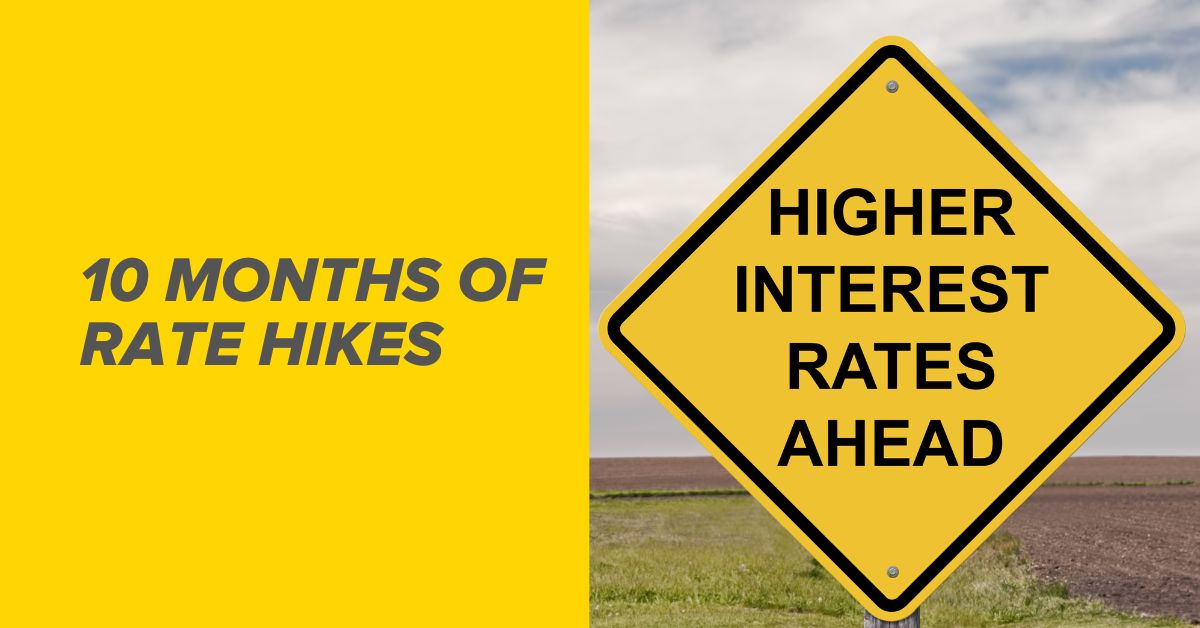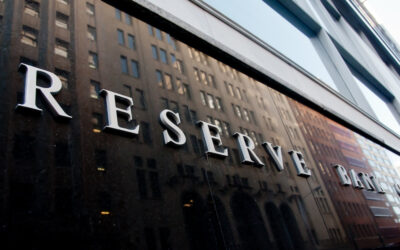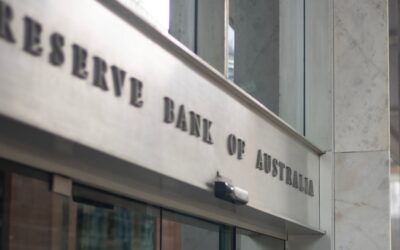In this article:

The Reserve Bank of Australia (‘RBA’) has decided to raise the official cash rate for the tenth consecutive time, leaving the cash rate at its highest level since June 2012 – 3.60%.
How does this affect your mortgage repayments?
Say for example your home loan interest rate were to increase from 5.50% to 5.75%, you would experience an increase of $15.78 per month, per $100,000 borrowed, in terms of minimum monthly repayments over a 30 year loan term. For example:
- Repayment increase on a $400,000 loan = $63.12
- Repayment increase on a $600,000 loan = $94.68
- Repayment increase on a $800,000 loan = $126.24
Whilst many experts are predicting that this may not be the last rate hike, Westpac’s Chief economist, Bill Evans, believes that the cash rate will peak at 4.1%. In some positive news, Evans is predicting several rate reductions to be introduced by the RBA in early 2024.
Mark Bouris and Stephen Koukoulas discussed these predictions on the latest episode of Property Insights:
In its official press release following the RBA’s monthly meeting, RBA Governor Philip Lowe said that the data the RBA has received “suggests that inflation has peaked in Australia.”
“The Board recognises that monetary policy operates with a lag and that the full effect of the cumulative increase in interest rates is yet to be felt in mortgage payments. There is uncertainty around the timing and extent of the slowdown in household spending. Some households have substantial savings buffers, but others are experiencing a painful squeeze on their budgets due to higher interest rates and the increase in the cost of living.”
The RBA reiterated that more rate rises may be in the future: “The Board expects that further tightening of monetary policy will be needed to ensure that inflation returns to target and that this period of high inflation is only temporary.”
Rate hikes are a blunt instrument:
Mark Bouris and Stephen Koukoulas explained why the RBA is continuing to raise rates on this week’s episode of Property Insights, despite it generally being accepted that interest rates a fairly ‘blunt tool’ in controlling inflation:
“All these interest rate changes, it’s all about the psychology of trying to change our behaviour. So every time the RBA puts rates up, it is a reserve bank trying to change our spending behaviour,” said Mark Bouris.
Koukoulas agreed: “It is changing our behaviour through sentiment, but also, as you said, the amount of money we have available to spend.”
“If we look at it from an individual’s perspective, you’re earning X dollars, you allocate Y dollars to your mortgage, and therefore you’ve got that much left over to spend on holidays and cars and essential items too,” said Koukoulas.
“When the RBA hikes rates, it increases the interest component of your income. If your interest payments go up by let’s say $1,000 a month, which is typical for a $500,000 loan taken out just one year ago, it means that you’ve got $12,000 less to spend elsewhere in the economy.”
“So in a sense, even though you’re still getting the same wage, your cash flow has decreased. And that rate hiking cycle also means that we’ve got depositors saying ‘Well hang on, If I can now shop around and get 3.5%, maybe 4% on a deposit, I’m going to put that away and I’m going to save up for my holiday or my deposit for a house as house prices are so soft. I’m going to put money in the bank.’
“So therefore the money is sucked out of the system and back into deposits and savings accounts.”
Government “Not expecting a recession”
Appearing on a special episode of Channel Nine’s 60 Minutes, Mark Bouris was asked to discuss whether there is a better way to manage inflation, rather than increasing interest rates.
He said that the RBA’s dependence on interest rates as a ‘cure-all’ for Australia’s economic issues is an outdated approach, and for now, Australia needs to stop panicking about inflation.
According to Mark, we have to become accustomed to higher inflation “for the short term, because we’re dealing with extraordinary circumstances.”
Bouris said, “We have a war in Ukraine, we’ve had floods, we’ve had droughts, we’ve had supply chain issues, a global pandemic, China closed down for a period of time because of it’s COVID policy, a lot of the stuff we import comes from those places…this is a very extraordinary period.”
In essence, Mark says we’re using a 1990’s economic policy to manage a 2023 economic situation.
Cherelle Murphy, Chief Economist at Ernst & Young agreed that raising interest rates to control inflation is “a blunt tool”, however if the RBA doesn’t tackle inflation, “then inflation will get away from us” and like it or not, the only way the RBA can tackle inflation is by raising interest rates.
“It’s like if the Australian economy was a patient, interest rates are the medicine, and the medicine doesn’t taste good, it takes a while for the medicine to kick in, but eventually it does kick in and we get on with life.”
“If the reserve bank effectively takes away some of our disposable income [by increasing interest rates], we might think twice about the holiday or the renovation let’s say, and that will again cool the economy down.”
Journalist Tom Steinfort then asked Murphy the obvious question:
“But aren’t the people with the most disposable income, those that have already paid off their mortgage?”
“Yes,” said Murphy.
Steinfort asked, “so this whole policy completely misses them?”
Murphy admitted, “That’s one of the very unfortunate parts of monetary policy. It is a big blunt tool and it’s quite unfair.”
Federal Treasurer Jim Chalmers also appeared on 60 Minutes to answer the question of whether we’re headed towards a recession?
“We don’t expect there to be a recession in the Australian economy. The treasury forecasters, the Reserve Bank and others are not expecting a recession. But I’ve got to be upfront with your viewers, and say that we do expect the economy to slow considerably,” said Chalmers.
We’re here to help
YBR Earlwood mortgage broker and branch principal, Effie Nicol, says that if you’re finding it hard to manage your mortgage repayments these days you are not alone. The good news is that there are potential solutions to help you manage.
Your YBR Home Loans mortgage broker can help you analyse your expenses and determine whether there are changes you can make to your repayment structure to ease the financial pressure.

Many lenders have hardship arrangements which allow you to temporarily pause or reduce your repayments, or extend the term of your loan, so you can get a handle on your finances.
Your broker can also help you look at refinancing to find a more affordable loan for your circumstances.
If you are worried about making your repayments, reach out to us today to give yourself the best chance of success in 2023.



